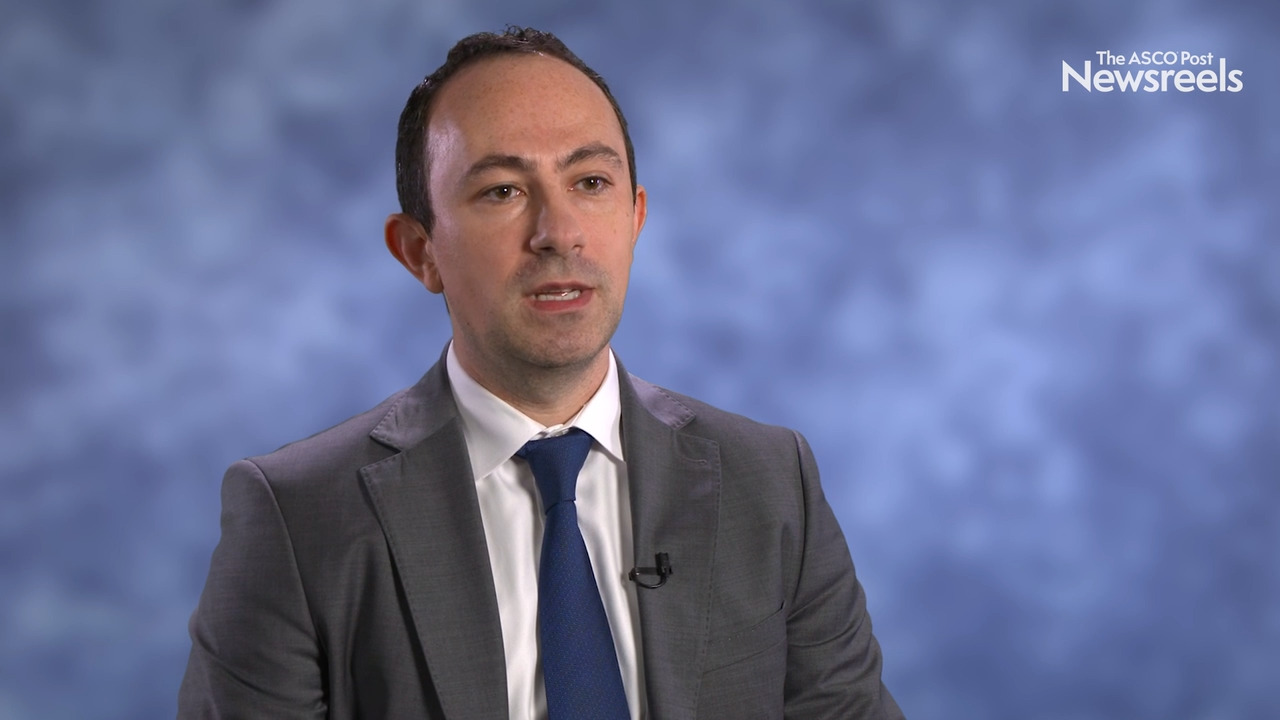Shauna Campbell, DO, on Head and Neck Cancer: Toxicity Associated With Hypofractionated IMRT
2021 ASTRO Annual Meeting
Shauna Campbell, DO, of Cleveland Clinic, discusses results from her study that showed hypofractionated intensity-modulated radiation therapy (H-IMRT) in the definitive or postoperative treatment of head and neck cancers using ≥ 50 Gy in 20 fractions appears to be safe and well tolerated with modest toxicity. Dr. Campbell suggests that prospective studies comparing the safety and efficacy of H-IMRT with those of conventionally fractionated IMRT are warranted (Abstract 2313).
The ASCO Post Staff
Youssef Zeidan, MD, PhD, of Florida International University and the Lynn Cancer Institute, discusses the advances in radiotherapy planning and delivery that have reduced cardiac radiation exposure in patients with HER2-positive breast cancer who are treated with radiotherapy and trastuzumab (Abstract 12).
The ASCO Post Staff
Diana D. Shi, MD, of Dana-Farber Cancer Institute and Brigham and Women’s Cancer Center, discusses studies being planned and already underway to test BAY 2402234, a de novo pyrimidine synthesis inhibitor that possibly could be used clinically to target IDH-mutant gliomas and may act as a tumor-selective radiosensitizer (Abstract 167).
The ASCO Post Staff
Mark K. Buyyounouski, MD, MS, of Stanford University, discusses phase III results from the NRG Oncology GU003 trial, which showed that, post-prostatectomy, using fewer—but higher—doses of radiation does not appear to increase long-term side effects or reduce quality of life when compared with conventional radiation treatment (Abstract 3).
The ASCO Post Staff
Benjamin Movsas, MD, of the Henry Ford Cancer Center, discusses results from the NRG Oncology/RTOG 0815 study, which explored dose-escalated radiotherapy alone or in combination with short-term hormonal therapy for patients with intermediate-risk prostate cancer. In addition to clinical outcomes, Dr. Movsas discusses patient-reported results in the study that may help patients make informed decisions when choosing between these treatment options (Abstract 4).
The ASCO Post Staff
Daniel J. Ma, MD, of the Mayo Clinic Alix School of Medicine, discusses results from a phase III study of patients with HPV-associated oropharyngeal squamous cell carcinoma. Comparing a 2-week course of de-escalated adjuvant radiation therapy with the standard 6-week course, investigators found that the shorter treatment appeared to have less toxicity, higher quality of life, and similar disease control as the longer standard-of-care treatment (Abstract LBA1).





